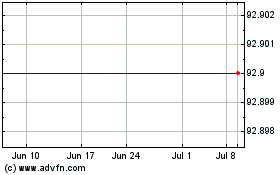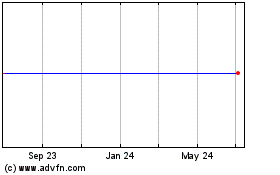More genetically engineered products are possible; local farmers
are resisting
By Brian Spegele
ZHAODONG, China -- The Huiji Hotpot restaurant is a local
favorite here, where diners boil meat and vegetables in cauldrons
of broth -- comfort food to gird against the subzero winter in this
far northern farming community.
A couple of years ago customers started to quiz manager Wu
Xiaofeng: Did his restaurant use oil made with genetically modified
soybeans in its kitchen? He hung a sign next to Huiji Hotpot's cash
register, pledging no.
"We felt it was better just to tell them not to worry," Mr. Wu
said.
Such worries aren't going away soon.
The opposition to genetically altered food and grains in China
has been brought to the forefront by China National Chemical
Corp.'s $43 billion deal to buy Swiss agro-giant Syngenta AG, a
leading producer of genetically engineered seeds. The ChemChina
deal would be by far China's biggest-ever foreign acquisition.
While China doesn't currently allow planting of such seeds for
grains like soybeans, many in the agriculture business expect that
to gradually change once the Syngenta acquisition clears regulatory
hurdles, expected later this year.
Any changes could face resistance from local farmers and other
Chinese. "All we know is that it's not natural," said Li Shubin,
who grows corn on his family's 3-acre plot in Changfu village, near
Zhaodong. His farmhouse is heated from an oven that burns dried
cobs from the field. "There could be problems with the food's
safety, so if that's the case we wouldn't dare use it."
Fear of genetically modified grains stems in part from wide
distrust of China's food industry, where scandals killed or
sickened thousands. In one of the worst, tainted milk and baby
formula sickened nearly 300,000 children, and killed six, in
2008.
The U.S. government, the National Academies of Sciences,
Engineering and Medicine, and even some Chinese leaders say GMO
crops are safe. Such products have become common in the U.S. and
other countries.
Proponents say the high-tech seeds boost farm yields -- a
priority for the government as it looks to feed a billion-plus
population. Industry executives say they're needed as part of broad
reforms to boost harvests and avoid more imports.
"You don't bring Syngenta to China and leave biotechnology out,"
said William Niebur, president of Origin Agritech Ltd., a
Nasdaq-listed seed research company.
That may be the plan, but it's complicated by resistance in
rural communities like Zhaodong in China's northern Heilongjiang
province. The region -- on the border with Russia -- looks like
Iowa with its fields of corn and soybeans. Its farmers produced 10%
of China's total grains last year, more than any other province,
according to government data.
Mr. Li and many others want China to continue to bar growing
genetically modified staples. Currently China only allows planting
genetically modified cotton and papaya, but allows imports of some
genetically modified grains.
A survey in Heilongjiang last year found over 90% of respondents
opposed genetically modified crops. A nationwide poll by a
government think tank found less than 20% would eat genetically
modified food, commonly known as GMOs.
Even some farmers in Zhaodong -- who could end up with higher
yields and incomes by using genetically modified seeds -- say
they're wary about safety.
For years, China has been an elusive Holy Grail for the global
seed industry. While Western giants including Syngenta, DuPont Co.
and Monsanto Co. are active in the world's most populous country,
the restrictions on genetically modified seeds makes it harder to
set themselves apart from local competitors. China's seed market
has been valued as high as $17 billion -- a tantalizing market that
could help the Swiss company grow its nearly $13 billion in annual
sales.
China's seed industry is diffuse and highly competitive,
agriculture executives say, with thousands of small companies vying
to sell to farmers. Introducing high-tech foreign seeds would
likely squeeze many of them out of business, and many will likely
fight to keep the status quo.
Chinese government officials appear mindful of the need to turn
around public opinion. Asked about GMO grains at a media briefing
this month, vice minister of agriculture Zhang Taolin said in
principle the government believed they were safe, but didn't give a
timeline for when they'd be grown domestically.
In a statement, Syngenta noted that China's government endorsed
significant research into GMO, and viewed it as a key part of
modernizing China's farms.
"Agricultural biotechnology can improve productivity, secure
yields and improve quality of crops while minimizing the
environmental impact of their production," the company said.
ChemChina didn't reply to requests for comment.
Jian Wu, China business director at DuPont's seed development
unit, said altering perceptions on GMO could take years.
In earlier years, the government didn't do a good job "to
educate the general public about the real benefits of GMO," he
said.
All that means more sales for Zhang Xiufang, who makes cooking
oil from non-GMO soybeans at her home near Zhaodong. Over the past
decade, she gained a following for her fragrant soybean oil.
Customers drive two hours from the provincial capital of Harbin to
fill their jerrycans, preferring what they see as her more natural
oil to the mass-produced types, which may include imported GMO
soybeans, sold at Chinese groceries, she said.
Sensing opportunity, her family bought new equipment to increase
production, hired workers, and registered a brand name.
"The people all like it," she said of her oil. "They think it's
healthier this way."
--Yang Jie contributed to this article.
Write to Brian Spegele at brian.spegele@wsj.com
(END) Dow Jones Newswires
March 27, 2017 02:47 ET (06:47 GMT)
Copyright (c) 2017 Dow Jones & Company, Inc.
Syngenta (NYSE:SYT)
Historical Stock Chart
From Mar 2024 to Apr 2024

Syngenta (NYSE:SYT)
Historical Stock Chart
From Apr 2023 to Apr 2024
